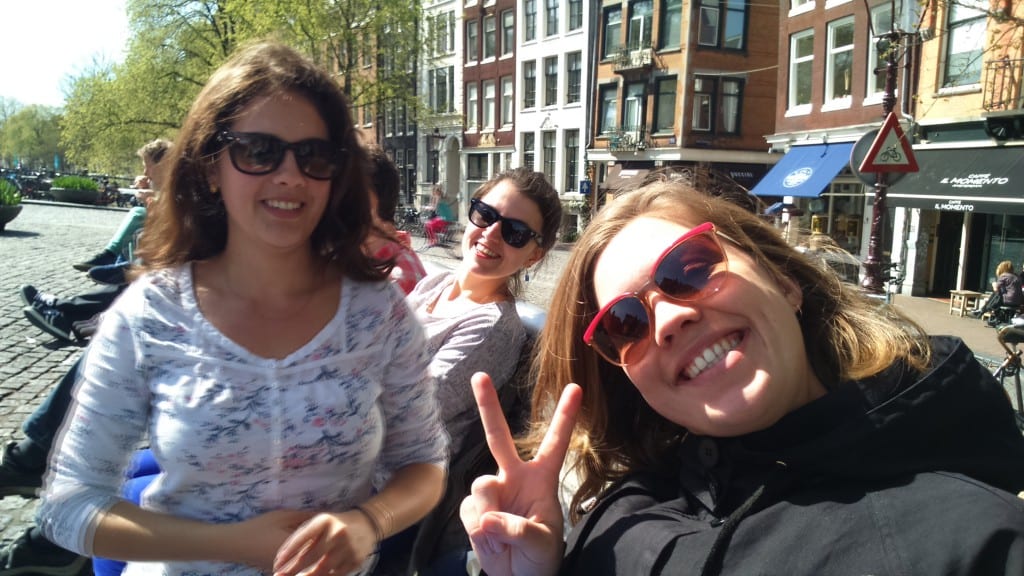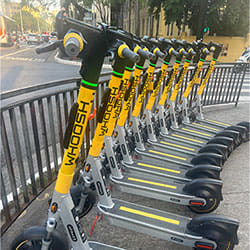One thing that keeps being very interesting to me are the differences in gender roles in Japan and The Netherlands. Due to our differences in history, society
and culture, how women are defined, what is expected of us and what we aim ourselves to become varies. This of course influences our experiences when we encounter other cultures, as did I when I was living in Japan. In Japan I have had experiences where I felt more limited as a woman compared to men or taken less seriously, but also on many occasions I felt that women were appreciated and respected for their feminine qualities in a way men would never be. I am by no means an expert on being a Japanese women in Japan, nor is what is written here anything more than a general approach, but I would like to give an introduction to as what Dutch women are, and why we are the way we are.

Firstly, one thing which greatly influences gender roles in The Netherlands is our egalitarian society and culture. In our culture great importance is put on all men (and women) being equally valuable, having the same rights and being treated equally under the same circumstances. Status and respect are obtained through study and work, and not through family bonds or old age.Subsequently, being confronted with inequality makes us really uncomfortable and we tend to avoid such situations. An example is that in a working environment the boss of the company stands in line with his employees at the cafeteria without claiming any special treatment. Moreover, if someone would ask him “You are the boss, right?”, he might even respond with “Only during work hours” to downplay his importance. Likewise, it is frowned upon when you ask someone to get you coffee or make photocopies. Another thing influenced by this is the service industry in the Netherlands (which is often critiqued to be not very good).
Because goods and services are exchanged on an equal basis, sales persons feel free to openly disagree and criticize their clients . Also the waitress might not go the extra mile to put a smile on her face when she is having a bad day. What this egalitarian society means for women is that matters such as the glass ceiling and sexual harassment are taken very seriously. Additionally, the many arrangements which enable women to work ánd parent, such as work sharing, give women a lot of freedom. Different from in Japan, parttime workers and fulltime workers are guaranteed equal treatment by law in terms of hourly wages and conditions such as promotions. This way people can be more flexible when dividing their time and efforts. Needles to say, not only women but also men benefit from these arrangements. In fact, being able to work part-time or from home also enables a lot of fathers to be spend more time with their families. There are also families where the father stays at home and the mother is the main provider. This is culturally embraced by Dutch people. Dutch men and women do not only work alongside each other, they also divide the housework and raise their children together. This is a big difference with Japanese culture I think; Dutch women tend to gravitate towards traditional male gender roles and vice versa. Women are stimulated to be assertive, undertaking and independent. Men are encouraged to be more dependent and open emotionally. Whereas in Japan there seem to be very clear and separate ideal gender roles. In general men work really hard, and women organize the house and are the main caretakers of their children.So what does it mean to my generation to be Dutch women in Amsterdam? We are expected to be intelligent, independent women with ambition who are aware of the achievements of the generations of women before us, especially those during the feminist movement in the 60’s, and don’t intend to let those go to waste. It is because of the women before us that we have the freedom and right to be in complete charge of our lives. We are free to study, work and have control over our bodies, our sexual relationships and decisions on birth control and abortion. We have the same opportunities as men and don’t tend to let our romantic relationships stand in the way of our ambition. Being in my twenties still, none of my friends will allow me to let the chance of an internship or strategic career move slip away because of anything to do with my partner. Ideally, boyfriends support their girlfriend in whatever they intent to pursue, as do we support them. Foremost, we aim to be strong, successful women.However, in practice this also means that women whose main concern is their looks, have no opinion about important matters or who let a man pay for everything are sometimes eyeballed or patronized. Also typically female qualities which are associated with passiveness and/ or weakness are made fun off or labeled as childish. This is where Japan to me feels quite special. A lot of Japanese women wear make-up and take pride in their sense of style. It is not seen as a weakness but as an enhancement and privilege of being a woman. I don’t know to what extent Japanese women feel pressured to look their best, but putting effort into your looks is definitely dealt with differently in Japan compared to The Netherlands. When I was living in Japan I also started to feel less hesitant towards putting effort in my appearance, and feel that way still. Also it seems that being relatively feminine, meaning being polite, kind and not as assertive can be a woman’s strength in Japan. For me, Japan has helped me find a better balance between being an ambitious, assertive woman and embracing a more traditional feminine side at the same time. I look at my friends, and I see that we are all searching for the right personal balance. It takes some time, but that’s a product of our vague gender roles. Dutch women might come off strong or intimidating, but we do have a soft side. If you ever encounter a nice Dutch girl and you want to make a good impression, don’t tell her that she’s “cute”, but rather tell her that she’s beautiful and ask her about her interests.
 Firstly, one thing which greatly influences gender roles in The Netherlands is our egalitarian society and culture. In our culture great importance is put on all men (and women) being equally valuable, having the same rights and being treated equally under the same circumstances. Status and respect are obtained through study and work, and not through family bonds or old age.Subsequently, being confronted with inequality makes us really uncomfortable and we tend to avoid such situations. An example is that in a working environment the boss of the company stands in line with his employees at the cafeteria without claiming any special treatment. Moreover, if someone would ask him “You are the boss, right?”, he might even respond with “Only during work hours” to downplay his importance. Likewise, it is frowned upon when you ask someone to get you coffee or make photocopies. Another thing influenced by this is the service industry in the Netherlands (which is often critiqued to be not very good). Because goods and services are exchanged on an equal basis, sales persons feel free to openly disagree and criticize their clients . Also the waitress might not go the extra mile to put a smile on her face when she is having a bad day. What this egalitarian society means for women is that matters such as the glass ceiling and sexual harassment are taken very seriously. Additionally, the many arrangements which enable women to work ánd parent, such as work sharing, give women a lot of freedom. Different from in Japan, parttime workers and fulltime workers are guaranteed equal treatment by law in terms of hourly wages and conditions such as promotions. This way people can be more flexible when dividing their time and efforts. Needles to say, not only women but also men benefit from these arrangements. In fact, being able to work part-time or from home also enables a lot of fathers to be spend more time with their families. There are also families where the father stays at home and the mother is the main provider. This is culturally embraced by Dutch people. Dutch men and women do not only work alongside each other, they also divide the housework and raise their children together. This is a big difference with Japanese culture I think; Dutch women tend to gravitate towards traditional male gender roles and vice versa. Women are stimulated to be assertive, undertaking and independent. Men are encouraged to be more dependent and open emotionally. Whereas in Japan there seem to be very clear and separate ideal gender roles. In general men work really hard, and women organize the house and are the main caretakers of their children.So what does it mean to my generation to be Dutch women in Amsterdam? We are expected to be intelligent, independent women with ambition who are aware of the achievements of the generations of women before us, especially those during the feminist movement in the 60’s, and don’t intend to let those go to waste. It is because of the women before us that we have the freedom and right to be in complete charge of our lives. We are free to study, work and have control over our bodies, our sexual relationships and decisions on birth control and abortion. We have the same opportunities as men and don’t tend to let our romantic relationships stand in the way of our ambition. Being in my twenties still, none of my friends will allow me to let the chance of an internship or strategic career move slip away because of anything to do with my partner. Ideally, boyfriends support their girlfriend in whatever they intent to pursue, as do we support them. Foremost, we aim to be strong, successful women.However, in practice this also means that women whose main concern is their looks, have no opinion about important matters or who let a man pay for everything are sometimes eyeballed or patronized. Also typically female qualities which are associated with passiveness and/ or weakness are made fun off or labeled as childish. This is where Japan to me feels quite special. A lot of Japanese women wear make-up and take pride in their sense of style. It is not seen as a weakness but as an enhancement and privilege of being a woman. I don’t know to what extent Japanese women feel pressured to look their best, but putting effort into your looks is definitely dealt with differently in Japan compared to The Netherlands. When I was living in Japan I also started to feel less hesitant towards putting effort in my appearance, and feel that way still. Also it seems that being relatively feminine, meaning being polite, kind and not as assertive can be a woman’s strength in Japan. For me, Japan has helped me find a better balance between being an ambitious, assertive woman and embracing a more traditional feminine side at the same time. I look at my friends, and I see that we are all searching for the right personal balance. It takes some time, but that’s a product of our vague gender roles. Dutch women might come off strong or intimidating, but we do have a soft side. If you ever encounter a nice Dutch girl and you want to make a good impression, don’t tell her that she’s “cute”, but rather tell her that she’s beautiful and ask her about her interests.
Firstly, one thing which greatly influences gender roles in The Netherlands is our egalitarian society and culture. In our culture great importance is put on all men (and women) being equally valuable, having the same rights and being treated equally under the same circumstances. Status and respect are obtained through study and work, and not through family bonds or old age.Subsequently, being confronted with inequality makes us really uncomfortable and we tend to avoid such situations. An example is that in a working environment the boss of the company stands in line with his employees at the cafeteria without claiming any special treatment. Moreover, if someone would ask him “You are the boss, right?”, he might even respond with “Only during work hours” to downplay his importance. Likewise, it is frowned upon when you ask someone to get you coffee or make photocopies. Another thing influenced by this is the service industry in the Netherlands (which is often critiqued to be not very good). Because goods and services are exchanged on an equal basis, sales persons feel free to openly disagree and criticize their clients . Also the waitress might not go the extra mile to put a smile on her face when she is having a bad day. What this egalitarian society means for women is that matters such as the glass ceiling and sexual harassment are taken very seriously. Additionally, the many arrangements which enable women to work ánd parent, such as work sharing, give women a lot of freedom. Different from in Japan, parttime workers and fulltime workers are guaranteed equal treatment by law in terms of hourly wages and conditions such as promotions. This way people can be more flexible when dividing their time and efforts. Needles to say, not only women but also men benefit from these arrangements. In fact, being able to work part-time or from home also enables a lot of fathers to be spend more time with their families. There are also families where the father stays at home and the mother is the main provider. This is culturally embraced by Dutch people. Dutch men and women do not only work alongside each other, they also divide the housework and raise their children together. This is a big difference with Japanese culture I think; Dutch women tend to gravitate towards traditional male gender roles and vice versa. Women are stimulated to be assertive, undertaking and independent. Men are encouraged to be more dependent and open emotionally. Whereas in Japan there seem to be very clear and separate ideal gender roles. In general men work really hard, and women organize the house and are the main caretakers of their children.So what does it mean to my generation to be Dutch women in Amsterdam? We are expected to be intelligent, independent women with ambition who are aware of the achievements of the generations of women before us, especially those during the feminist movement in the 60’s, and don’t intend to let those go to waste. It is because of the women before us that we have the freedom and right to be in complete charge of our lives. We are free to study, work and have control over our bodies, our sexual relationships and decisions on birth control and abortion. We have the same opportunities as men and don’t tend to let our romantic relationships stand in the way of our ambition. Being in my twenties still, none of my friends will allow me to let the chance of an internship or strategic career move slip away because of anything to do with my partner. Ideally, boyfriends support their girlfriend in whatever they intent to pursue, as do we support them. Foremost, we aim to be strong, successful women.However, in practice this also means that women whose main concern is their looks, have no opinion about important matters or who let a man pay for everything are sometimes eyeballed or patronized. Also typically female qualities which are associated with passiveness and/ or weakness are made fun off or labeled as childish. This is where Japan to me feels quite special. A lot of Japanese women wear make-up and take pride in their sense of style. It is not seen as a weakness but as an enhancement and privilege of being a woman. I don’t know to what extent Japanese women feel pressured to look their best, but putting effort into your looks is definitely dealt with differently in Japan compared to The Netherlands. When I was living in Japan I also started to feel less hesitant towards putting effort in my appearance, and feel that way still. Also it seems that being relatively feminine, meaning being polite, kind and not as assertive can be a woman’s strength in Japan. For me, Japan has helped me find a better balance between being an ambitious, assertive woman and embracing a more traditional feminine side at the same time. I look at my friends, and I see that we are all searching for the right personal balance. It takes some time, but that’s a product of our vague gender roles. Dutch women might come off strong or intimidating, but we do have a soft side. If you ever encounter a nice Dutch girl and you want to make a good impression, don’t tell her that she’s “cute”, but rather tell her that she’s beautiful and ask her about her interests.
 Firstly, one thing which greatly influences gender roles in The Netherlands is our egalitarian society and culture. In our culture great importance is put on all men (and women) being equally valuable, having the same rights and being treated equally under the same circumstances. Status and respect are obtained through study and work, and not through family bonds or old age.Subsequently, being confronted with inequality makes us really uncomfortable and we tend to avoid such situations. An example is that in a working environment the boss of the company stands in line with his employees at the cafeteria without claiming any special treatment. Moreover, if someone would ask him “You are the boss, right?”, he might even respond with “Only during work hours” to downplay his importance. Likewise, it is frowned upon when you ask someone to get you coffee or make photocopies. Another thing influenced by this is the service industry in the Netherlands (which is often critiqued to be not very good). Because goods and services are exchanged on an equal basis, sales persons feel free to openly disagree and criticize their clients . Also the waitress might not go the extra mile to put a smile on her face when she is having a bad day. What this egalitarian society means for women is that matters such as the glass ceiling and sexual harassment are taken very seriously. Additionally, the many arrangements which enable women to work ánd parent, such as work sharing, give women a lot of freedom. Different from in Japan, parttime workers and fulltime workers are guaranteed equal treatment by law in terms of hourly wages and conditions such as promotions. This way people can be more flexible when dividing their time and efforts. Needles to say, not only women but also men benefit from these arrangements. In fact, being able to work part-time or from home also enables a lot of fathers to be spend more time with their families. There are also families where the father stays at home and the mother is the main provider. This is culturally embraced by Dutch people. Dutch men and women do not only work alongside each other, they also divide the housework and raise their children together. This is a big difference with Japanese culture I think; Dutch women tend to gravitate towards traditional male gender roles and vice versa. Women are stimulated to be assertive, undertaking and independent. Men are encouraged to be more dependent and open emotionally. Whereas in Japan there seem to be very clear and separate ideal gender roles. In general men work really hard, and women organize the house and are the main caretakers of their children.So what does it mean to my generation to be Dutch women in Amsterdam? We are expected to be intelligent, independent women with ambition who are aware of the achievements of the generations of women before us, especially those during the feminist movement in the 60’s, and don’t intend to let those go to waste. It is because of the women before us that we have the freedom and right to be in complete charge of our lives. We are free to study, work and have control over our bodies, our sexual relationships and decisions on birth control and abortion. We have the same opportunities as men and don’t tend to let our romantic relationships stand in the way of our ambition. Being in my twenties still, none of my friends will allow me to let the chance of an internship or strategic career move slip away because of anything to do with my partner. Ideally, boyfriends support their girlfriend in whatever they intent to pursue, as do we support them. Foremost, we aim to be strong, successful women.However, in practice this also means that women whose main concern is their looks, have no opinion about important matters or who let a man pay for everything are sometimes eyeballed or patronized. Also typically female qualities which are associated with passiveness and/ or weakness are made fun off or labeled as childish. This is where Japan to me feels quite special. A lot of Japanese women wear make-up and take pride in their sense of style. It is not seen as a weakness but as an enhancement and privilege of being a woman. I don’t know to what extent Japanese women feel pressured to look their best, but putting effort into your looks is definitely dealt with differently in Japan compared to The Netherlands. When I was living in Japan I also started to feel less hesitant towards putting effort in my appearance, and feel that way still. Also it seems that being relatively feminine, meaning being polite, kind and not as assertive can be a woman’s strength in Japan. For me, Japan has helped me find a better balance between being an ambitious, assertive woman and embracing a more traditional feminine side at the same time. I look at my friends, and I see that we are all searching for the right personal balance. It takes some time, but that’s a product of our vague gender roles. Dutch women might come off strong or intimidating, but we do have a soft side. If you ever encounter a nice Dutch girl and you want to make a good impression, don’t tell her that she’s “cute”, but rather tell her that she’s beautiful and ask her about her interests.
Firstly, one thing which greatly influences gender roles in The Netherlands is our egalitarian society and culture. In our culture great importance is put on all men (and women) being equally valuable, having the same rights and being treated equally under the same circumstances. Status and respect are obtained through study and work, and not through family bonds or old age.Subsequently, being confronted with inequality makes us really uncomfortable and we tend to avoid such situations. An example is that in a working environment the boss of the company stands in line with his employees at the cafeteria without claiming any special treatment. Moreover, if someone would ask him “You are the boss, right?”, he might even respond with “Only during work hours” to downplay his importance. Likewise, it is frowned upon when you ask someone to get you coffee or make photocopies. Another thing influenced by this is the service industry in the Netherlands (which is often critiqued to be not very good). Because goods and services are exchanged on an equal basis, sales persons feel free to openly disagree and criticize their clients . Also the waitress might not go the extra mile to put a smile on her face when she is having a bad day. What this egalitarian society means for women is that matters such as the glass ceiling and sexual harassment are taken very seriously. Additionally, the many arrangements which enable women to work ánd parent, such as work sharing, give women a lot of freedom. Different from in Japan, parttime workers and fulltime workers are guaranteed equal treatment by law in terms of hourly wages and conditions such as promotions. This way people can be more flexible when dividing their time and efforts. Needles to say, not only women but also men benefit from these arrangements. In fact, being able to work part-time or from home also enables a lot of fathers to be spend more time with their families. There are also families where the father stays at home and the mother is the main provider. This is culturally embraced by Dutch people. Dutch men and women do not only work alongside each other, they also divide the housework and raise their children together. This is a big difference with Japanese culture I think; Dutch women tend to gravitate towards traditional male gender roles and vice versa. Women are stimulated to be assertive, undertaking and independent. Men are encouraged to be more dependent and open emotionally. Whereas in Japan there seem to be very clear and separate ideal gender roles. In general men work really hard, and women organize the house and are the main caretakers of their children.So what does it mean to my generation to be Dutch women in Amsterdam? We are expected to be intelligent, independent women with ambition who are aware of the achievements of the generations of women before us, especially those during the feminist movement in the 60’s, and don’t intend to let those go to waste. It is because of the women before us that we have the freedom and right to be in complete charge of our lives. We are free to study, work and have control over our bodies, our sexual relationships and decisions on birth control and abortion. We have the same opportunities as men and don’t tend to let our romantic relationships stand in the way of our ambition. Being in my twenties still, none of my friends will allow me to let the chance of an internship or strategic career move slip away because of anything to do with my partner. Ideally, boyfriends support their girlfriend in whatever they intent to pursue, as do we support them. Foremost, we aim to be strong, successful women.However, in practice this also means that women whose main concern is their looks, have no opinion about important matters or who let a man pay for everything are sometimes eyeballed or patronized. Also typically female qualities which are associated with passiveness and/ or weakness are made fun off or labeled as childish. This is where Japan to me feels quite special. A lot of Japanese women wear make-up and take pride in their sense of style. It is not seen as a weakness but as an enhancement and privilege of being a woman. I don’t know to what extent Japanese women feel pressured to look their best, but putting effort into your looks is definitely dealt with differently in Japan compared to The Netherlands. When I was living in Japan I also started to feel less hesitant towards putting effort in my appearance, and feel that way still. Also it seems that being relatively feminine, meaning being polite, kind and not as assertive can be a woman’s strength in Japan. For me, Japan has helped me find a better balance between being an ambitious, assertive woman and embracing a more traditional feminine side at the same time. I look at my friends, and I see that we are all searching for the right personal balance. It takes some time, but that’s a product of our vague gender roles. Dutch women might come off strong or intimidating, but we do have a soft side. If you ever encounter a nice Dutch girl and you want to make a good impression, don’t tell her that she’s “cute”, but rather tell her that she’s beautiful and ask her about her interests.






























































